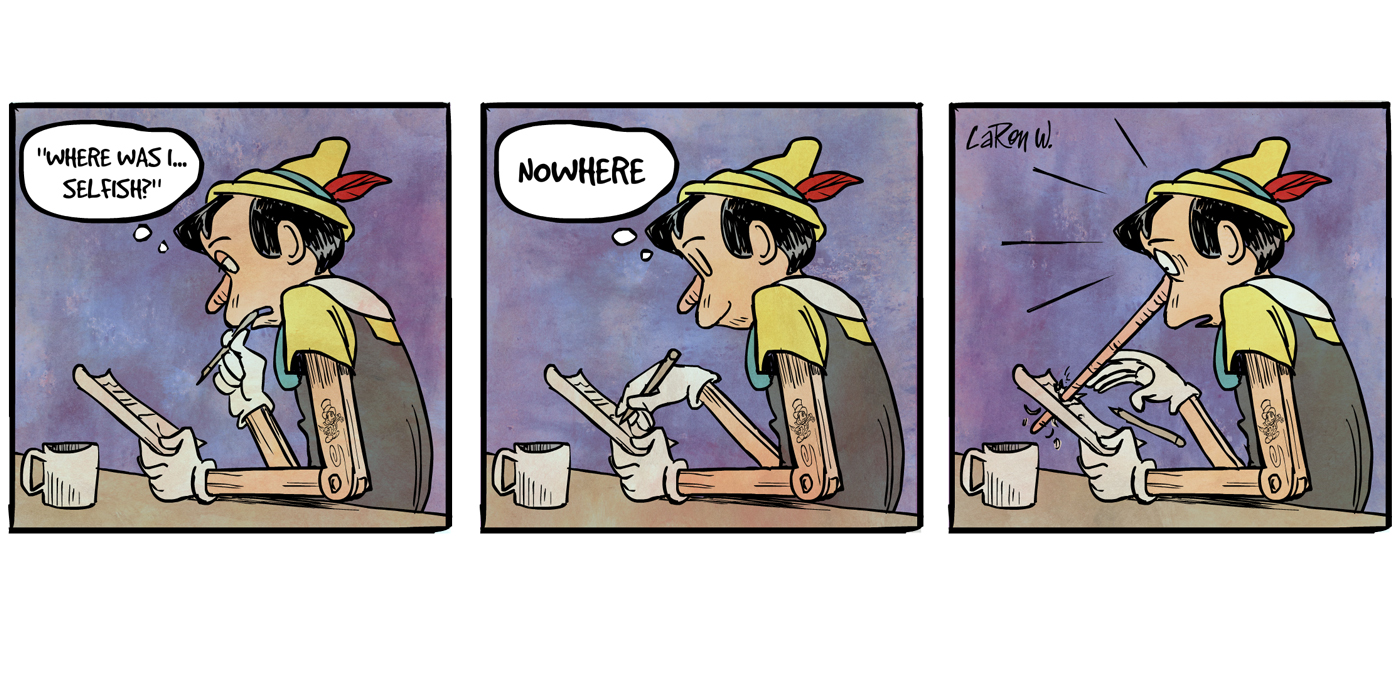Lately I’ve been meditating on the reading, “Rarely have we seen a person fail who has thoroughly followed our path” (AA 58, “How it Works”). I’ve found myself wondering, Why “rarely”? Why not “never”? To my sexaholic mind, “never” would seem a challenge; “I will prove them wrong!” my disease wants to say. I tend to see the fault in authorities’ use of absolute or dogmatic terms, while self-righteously ignoring that I am often guilty of doing the same. I love to prove that they have wronged me, and once again let me down in my demand that they should be perfect to be worthy of helping (parenting?) me.
Thankfully, by the grace of God, our forerunners in AA had the wisdom to say that “rarely” had they seen a person fail—perhaps in a demonstration of humility and wisdom? Maybe they were familiar with the character defects we addicts tend to share, such as defiance, resentment, arrogance, self-righteousness, self-pity, perfectionism, and self-destructiveness. I can be guilty of all of these defects because I am insane.
My ego is next confronted with the words “seen a person fail.” Is my sobriety or lack thereof going to be seen? The idea that my secrets would be seen by others kept me from coming into the program for many years. After being painfully exposed as the result of getting caught while acting out, and then having nothing left to lose, I tentatively opened the forbidding doors and came limping into my first meeting. I finally confronted my worst nightmare.
I had previously imagined that I might die of mortification if anyone ever knew what I had been doing. The idea of being seen and therefore judged as “bad” (as I was convinced I actually was) had seemed an insurmountable barrier to seeking help. This kept me locked in my addiction for many years, and only after a huge amount of pain and desperation did I muster the courage to attend my first meeting. So yes, being seen is exactly the medicine I needed to swallow.
Probing further, it seems that being seen (and therefore accountable) is where I often find the motivation to stay sober. Taking advantage of my insecure need to receive approval and acceptance from others, the program has supplied me with a powerful motivator for continued sobriety. I am capable of going to great lengths to avoid becoming a “failure” in the eyes of other group members. Over time, this negative motivator has slowly begun to shift toward not wanting to lose the benefits of sobriety such as peace of mind, serenity, and increased feelings of self-worth. But in simple and honest terms, the fear of having to shamefully admit failure is still an ongoing reason for me to not act out, and thereby be able to cling to my new identity as a “sober” sexaholic.
Like a young child looking into the eyes of his mother, searching for confirmation that I am worthy, loved, and approved of, I take the look of acceptance I get from others and use this as the raw material from which I build my inner self. This necessary nourishment—the gaze of love and acceptance of others—is what I have received within our meetings, and this has begun to provide the healing I so very much need. Gratitude and a natural desire to pass on this healing gaze has been the inevitable result of having received what I desperately needed all those years in my acting out. I was “making the Real Connection” (SA 62). Accepting the look of love has also helped me in daily meditation to imagine myself in the presence of God. It enables me to look into His eyes and allow myself to see and feel His loving gaze, feel His love for me, and allow my heart to be touched by His heart.
Continuing with the opening sentence from AA Chapter Five, I confront the word “thoroughly.” This word has become the clarion call for me to work my program with at least as much energy, dedication, and perseverance as I previously put into my addiction. Commitment to this work is a necessary ingredient to my success. I must place the required work, time, and energy of a thorough recovery program above all else in my life—just as I used to do with my addiction. The phrase that comes to mind is, “I need to build my life around my recovery instead of building my recovery around my life.” Without recovery, I am in jeopardy of losing everything. Whatever life I do build will not be worth living if I continue bearing the weight and pain of my addictions. The choice is mine.
What are the actions I can take that will lead me to successful recovery? The answer lies in the next words of the sentence, “followed our path.” Here once again my rebellious nature threatens my sobriety and therefore my life. I must drop my arrogant belief in the discriminating power of my superior intellect to determine what is right and wrong and what is good or bad for me. Instead, I must follow the directions and successful path that others have travelled before. I must follow their lead. I must surrender my pride and my rights to choose, and ask for and follow the direction of others. What a bitter pill for this sexaholic to swallow!
Hat in hand, I am required to approach another and ask him to become my sponsor and guide me. What woeful condition my disease has brought me to! But this has become the ego-smashing course I am required to follow if I want to recover from the horrible condition I found myself in by doing things my way. As we read at our meetings, “These conclusions were forced upon us in the crucible of our experiences and recovery; we have no other options. But we have found that acceptance of these facts is the key to a happy and joyous freedom we could otherwise never know” (SA 4).
Robert M., San Diego, CA






